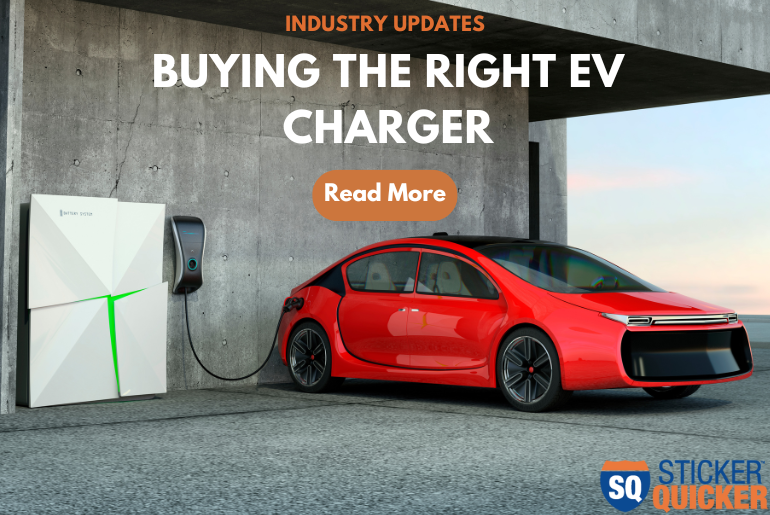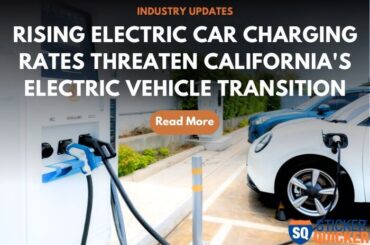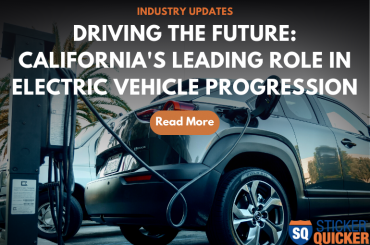Buying The Right EV Charger
Today, we will tell you what to know when buying the correct EV charger. With so many types of chargers out there nowadays, we want you to see the difference. Save yourself time and buy the correct charger for your car!
An Introduction to EV Chargers
When buying an EV charger, be sure to know there are two types of chargers – Level 1 and Level 2.
Level 1 EV chargers are the most common type of charging station and the most basic. They also use a standard 120-volt AC plug, typically found in most home and office spaces. Level 1 AC plugs provide a charging rate of about 2 to 5 miles per hour. These chargers are also usually used overnight and can fully charge an EV in about 8 to 12 hours, depending on the size of the battery and its charging capacity.
On the other hand, Level 2 EV chargers are used less. They are typically installed in public settings, like parking lots, malls, and hotels. However, they are also used in homes and office spaces. Unlike Level 1, these chargers can give your car up to 10 to 60 miles per hour – depending on the charging speed and battery capacity. Level 2 chargers are perfect for those looking to charge their EVs quickly and effectively.
Next, we will dive into some options for buying an EV charger.
Find the Right EV Charger For You
-
Smart EV Chargers
Primarily, Smart EV chargers have been introduced by manufacturers to make charging vehicles more accessible and less costly. These chargers enable automatic charging to occur when solar power is generated or when electricity prices are actively decreasing. Moreover, regular home chargers utilize a lot of energy. So by using a Smart EV charger, you will prevent grid overloads from taking place. Typically, these chargers have also been developed with Wifi and Bluetooth to ensure an easy setup and monitoring system.
With Smart EV chargers, there are many opportunities to reduce charging costs and increase the self-sufficiency of using solar power. Therefore, the most common charger mode used is solar-only charging, which, as we mentioned above, is designed to schedule charging during decreases in electricity pricing. In contrast, another charging mode used is load balancing, when the rate at which the EV charges is adjusted to ensure that the charger does not utilize too much power and turns off your electric supply.
Note that you can only enable smart charging modes if the EV charger can store data regarding solar generation or other types of electricity-consuming loads. Therefore, in most cases, to properly monitor the solar loads, external sensors and CT clamps are necessary to transfer data back to the charger. Compared to OCPP (Open Charge Point Protocol) compliance, which is designed to utilize remote controls powered by external software, these chargers do not need any external meters or hardware if they are OCPP compliant.
Options for Smart Chargers
-
Smappee EV Wall
The first charger we suggest checking out is the Smappee EV Wall charger. Initially released in 2021, these chargers include an Infinity system that enables advanced smart charging modes and options for charging scheduling to maximize solar power without breaking down.
You can get this charger in single-phase (7.2kW) or 3-phase (22kW) options, including 3 CT meters. It also has features that offer energy monitoring, smart solar charging, and load control. This product is OCPP 1.6 compliant.
-
Zappi V2
Next, the Zappi V2 charger has risen as one of the most popular charging devices on the market. This product has three charging modes – eco, eco+, and fast. In eco-mode, the charger will primarily use self-generated solar power while also ensuring a minimal amount of grid power is taken. Meanwhile, eco+ mode enables the charger to increase its efficiency quickly. It will not utilize any grid power when the weather is terrible. Charging will be held off as your house absorbs the grid power. And lastly, in fast mode, the charger powers your EV at a maximum rate – without consideration of the solar generation or the abysmal weather.
-
Anderson A2
The third smart charger is the Anderson A2, an efficient, aesthetic choice. This charger, like the others, offers energy management options, load-balancing, and smart scheduling. Yet, what differentiates this charger from the other chargers is that this one is customizable, and its sleek design prevents you from seeing both the cables and connectors inside.
The Best Level 2 EV Chargers for Home
In addition to Smart Chargers, there are other types of chargers that you can use in your home, especially if you are a Tesla owner. For optimal speed and efficiency, we suggest purchasing a Level 2 charger. Please keep reading and learn about the best home EV chargers and their benefits.
-
United Chargers Grizzl-E Classic
Fast charging, lightweight, and lengthy, these chargers are an excellent choice for your home. Also, this charger costs less than many of its competitors. However, that does not mean that the Grizzl-E Classic is not just as good or even better. This product is rated for a current of 40A, faster than most Level 1 chargers with EVs.
-
Tesla Wall Connector
You will want the Tesla Wall Connector if you are a Tesla owner. If you are not a Tesla driver, you should avoid getting this one because it will require a third-party adapter, which is relatively expensive. So, if you are a Tesla driver, get this charger with a maximum rating of 48 A.
-
Enel X Way JuiceBox
The Enel X Juicebox has multiple options for Level 2 chargers at home. They have the JuiceBox 32, 40, and 48. The JuiceBox 40 is the best seller, offering the most power. Meanwhile, the JuiceBox 48 is the 2nd best option with the 2nd most power. And lastly, the JuiceBox 32 is made for older homes, whose electrical circuits are limited to 40 amps.
So, this is a great place to start if you want to buy an EV charger. Consider which charger works best for you and your driving habits. Meanwhile, remember to make sure that the type of charger you choose is compatible with the power grid in your house. Check out our blog for more information on EVs, automotive, and industry updates. Here at Sticker Quicker, we want to do all we can to ensure our customers are safe and informed drivers!
Works Cited:
https://news.energysage.com/the-enel-x-way-home-ev-charger-review/
https://www.nytimes.com/wirecutter/reviews/best-electric-vehicle-chargers-for-home/
https://www.cleanenergyreviews.info/blog/best-smart-ev-chargers






